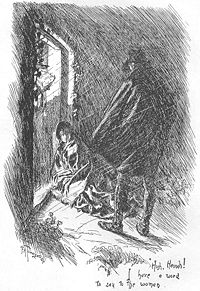“Kind words are like honey–sweet to the soul and healthy for the body.” (Proverbs 16:24)
“The worst kinds of unhappiness, as well as the greatest amount of it,” says Father Faber, “come from our conduct to each other.” Thus, he says, “if our conduct…were under the control of kindness,” we would live in a vastly happier world.
I have a little note I taped to the top rim of my computer screen which says, KINDNESS/POWER, but I have to admit that kind words do not always come out of my mouth when someone interrupts me while I’m zoned in on the internet world. Kindness is a huge virtue in the spiritual life, and one we need to put into practice more and more.
Father Faber mentions that kindness is a “considerable power.” He says that it is kindness that “makes life more endurable,” and which has the power to “make life’s capabilities blossom.” Faber says that “kindness is the overflowing of self upon others. We put others in the place of self. We treat them as we should wish to be treated ourselves.” Faber adds that “kindness adds sweetness to everything.”
The purpose of this short note is to suggest that kind words are a considerable power we have at our disposal. In fact, Faber says that kindness is “an immense power.” Grace-filled kindness is so powerful that this virtue can ripen into a fruit of the Holy Spirit (see Galatians 5:22). A fruit of the Holy Spirit, which involves a certain perfection of a supernatural virtue, is an enormous power. We should therefore pray to the Holy Spirit for an increase of the virtue of kindness.
Faber says that “kindness seems to know of some secret fountain of joy deep in the soul” and that it offers us a “peculiar participation in the spirit of Jesus.” He says that “men do not sufficiently understand” the “value” of kindness. “The interior beauty of a soul through habitual kindliness of thought is greater than our world can tell.”
Father Faber says there is “hardly a power on earth equal to” kind words. He further points out that there are so many “fortunate opportunities” to be kind. When you think about it, the opportunity for great heroism may never come our way, but we can say kind things all day long! And what do kind words cost us? Virtually nothing! But what is lost if we fail to speak kindly? As Faber points out, kind words are not only remedial, helping those in need of encouragement, they actually produce happiness. He says, “how often have we ourselves been made happy by kind words.” It “would be worth going through fire and water to acquire the right and to find the opportunity of saying kind words.”
Faber says that “not only is kindness due everyone, but a special kindness is due everyone.” And “is there any happiness in the world like the happiness of the disposition made happy by the happiness of others?,” Faber asks. “There is no joy to be compared with it.” “Kindness is the turf of the spiritual world, whereon the sheep of Christ feed quietly beneath the Shepherd’s eye.”
Let us make a resolution, then, to be an “apostolate of kindness.” Let us reflect on what a great virtue kindness is, and what power it has to bring sunshine and happiness where there is gloom and discouragement. And through kind words the “bruised reed” will not be broken, and the “flickering candle” will not be extinguished (see Matt. 12:20), and we will see that “our neighbor is our refuge” and self “the demon foe” (George MacDonald).
Tom Mulcahy, M.A.
Ref. As you can see, I am relying almost completely on Father Faber’s famous essay, “Kindness,” in his book, Spiritual Conferences (TAN). Although a long essay it is well worth reading and meditating on. Faber’s point that a special kindness is due to everyone, if taken to heart, has the power to increase our personal holiness. One word of caution: kindness and praise must be sincere and genuine. A false kindness, a calculated kindness, is easily detected. That is why we should pray to the Holy Spirit for the supernatural growth of the virtue of kindness.
To SHARE on SOCIAL MEDIA: click on “Leave a comment” or “Comments” below (and this will bring up social media icons if they are not already present).
To LEAVE A COMMENT: click on “Leave a comment” or “Comments” below, and then scroll down to the box which says, “Leave Your Own Comment Here,” which is at the end of any comments already made. If the comment section is already present, merely scroll to the end of any comments already made.








